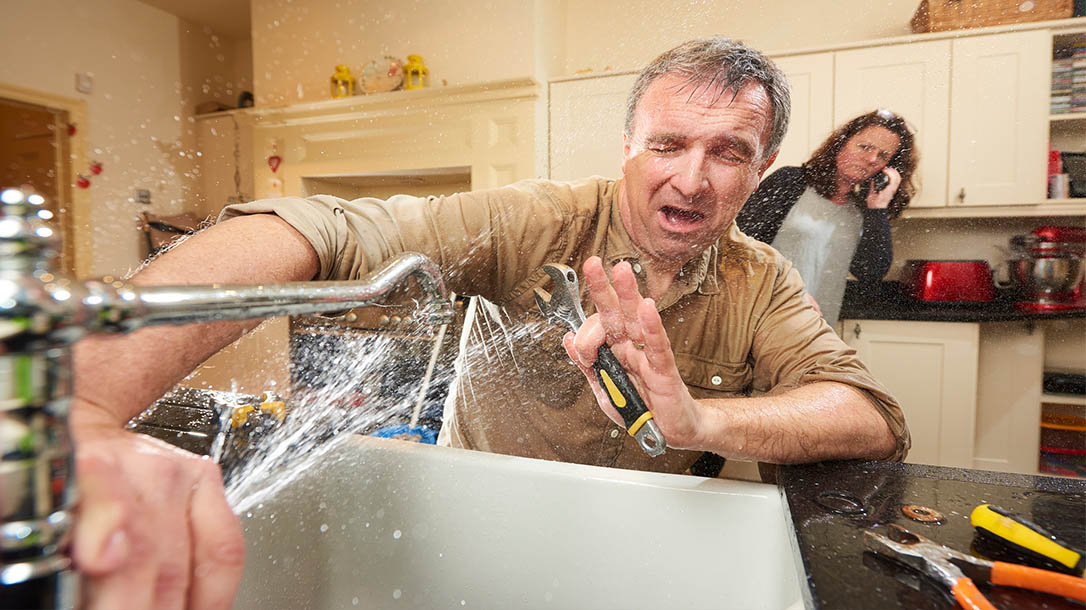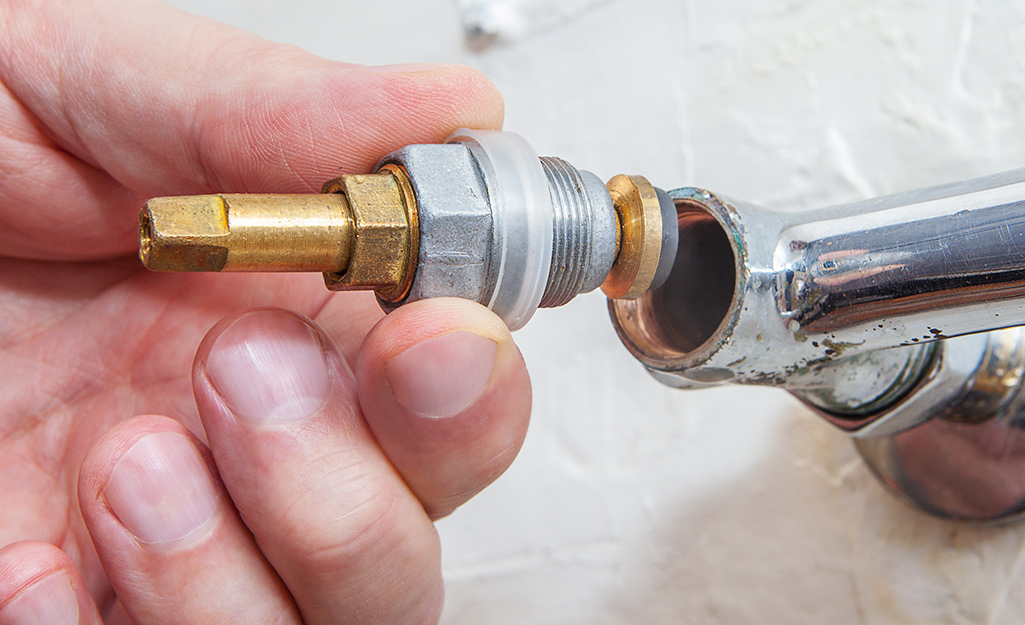Explanations Why It's Vital to Rectify a Malfunctioning Faucet
Explanations Why It's Vital to Rectify a Malfunctioning Faucet
Blog Article
Almost everyone has got their own rationale about How to Fix a Dripping or Leaky Faucet .

Trickling faucets could look like a small inconvenience, however their influence exceeds just the annoyance of the sound. From wasting water to incurring unneeded economic costs and health threats, neglecting a leaking faucet can lead to numerous effects. In this short article, we'll delve into why it's critical to resolve this common house problem immediately and properly.
Waste of Water
Ecological Influence
Trickling taps add significantly to water waste. According to the Environmental Protection Agency (EPA), a single tap trickling at one drip per secondly can throw away greater than 3,000 gallons of water annually. This not only strains water resources yet additionally impacts environments and wild animals dependent on them.
Step-by-Step Overview to Taking Care Of a Dripping Tap
Tools Required
Before trying to repair a leaking tap, gather the necessary tools, including a flexible wrench, screwdrivers, substitute components (such as washing machines or cartridges), and plumber's tape.
Common Faucet Issues and Their Solutions
Recognize the kind of tap and the specific issue triggering the drip. Common troubles include worn-out washing machines, corroded shutoff seats, or faulty O-rings. Refer to supplier directions or on the internet tutorials for step-by-step assistance on fixings.
Financial Costs
Boosted Water Bills
Beyond the ecological influence, dripping faucets can blow up water bills significantly. The gathered wastefulness over time equates right into higher utility costs, which might have been avoided with timely repair work.
Possible Residential Property Damages
Moreover, long term dripping can result in harm to components and surface areas bordering the tap. Water accumulation can trigger discoloration, rust, and even structural problems if left ignored, leading to extra fixing prices.
Health and wellness Problems
Mold and Mildew Growth
The constant presence of moisture from a leaking tap produces an optimal atmosphere for mold and mold growth. These fungi not just jeopardize interior air high quality yet likewise pose wellness threats, particularly for people with respiratory problems or allergic reactions.
Waterborne Diseases
Stationary water in leaking taps can come to be a breeding ground for microorganisms and various other pathogens, raising the danger of waterborne diseases. Pollutants such as Legionella microorganisms thrive in stationary water, potentially leading to severe illnesses when ingested or breathed in.
DIY vs. Specialist Repair work
Advantages and disadvantages of DIY Repair
While some may attempt to repair a dripping tap themselves, do it yourself repair work come with their very own set of obstacles. Without correct understanding and tools, DIY efforts can intensify the problem or result in insufficient repair work, prolonging the trouble.
Advantages of Hiring an Expert Plumber
Employing a specialist plumber ensures that the underlying cause of the leaking faucet is dealt with properly. Plumbing technicians have the know-how and tools to detect and fix faucet concerns efficiently, conserving time and minimizing the risk of further damage.
Ecological Obligation
Private Payment to Conservation
Taking obligation for fixing leaking taps lines up with wider initiatives toward water preservation and environmental sustainability. Every individual's actions collectively make a significant impact on preserving valuable resources.
Lasting Living Practices
By focusing on timely repair work and taking on water-saving practices, people add to lasting living practices that benefit both existing and future generations.
Safety nets
Routine Maintenance Tips
To stop dripping faucets, execute routine maintenance such as cleaning up aerators, inspecting for leakages, and changing damaged components promptly. Additionally, think about mounting water-saving tools or upgrading to more effective fixtures.
Value of Prompt Repairs
Addressing trickling taps as quickly as they're seen prevents more water wastefulness and potential damage, inevitably conserving both water and money over time.
Influence On Property Value
Assumption of Well-Maintained Home
Maintaining a residential property in good condition, including addressing upkeep concerns like trickling faucets, improves its perceived value and value among potential buyers or occupants.
Influence on Resale Worth
Qualities with well-kept plumbing fixtures, consisting of faucets, command greater resale worths in the real estate market. Resolving dripping taps can contribute to a favorable perception throughout property examinations and negotiations.
Final thought
Dealing with a dripping tap goes beyond plain ease; it's a necessary step towards saving water, lowering economic prices, and safeguarding wellness and property. Whether through do it yourself fixings or specialist help, acting to repair dripping faucets is a little yet impactful way to advertise accountable stewardship of resources and add to a healthier, more lasting future.
How to Fix a Leaky Faucet: Step-by-Step Repair Guide
A leaky faucet may seem like a simple annoyance, but if it's not fixed promptly, that leak could cost hundreds to potentially thousands. From water damage to mold, mildew, and high water bills, even a tiny leak can be catastrophic if left unattended. Damage like this can even affect the overall value of your home, so it's important to take the right approach for leaky faucet repair. You may need the help of a plumber in some cases, but we've got a few tips you can try on how to fix a leaky faucet before calling the pros.
Four Faucet Types
When you're learning how to fix a leaky faucet, the first step is knowing what kind of faucet you're working with! There are four common types.
Cartridge Faucets
Cartridge faucets come in one- or two-handled varieties. In one-handled cartridge faucets, hot and cold water combines in a single cartridge. In the two-handled versions, hot and cold water are controlled separately and mixed in the faucet.
Ball Faucets
Ball faucets have a single lever you push up and down to adjust the pressure and rotate to change the temperature. A slotted metal ball controls the amount of water allowed into the spout.
Compression Washer Faucets
They're the oldest type of faucet, but they're still used in many homes — especially older ones. Compression faucets have two separate handles that, when turned, raise or lower the washer that seals a water valve. This valve stops water from flowing through the faucet when it is turned off.
Disc Faucets
Disc faucets rarely need to be repaired due to their maintenance-free design. The water flow is controlled by two discs — the upper one raises and lowers against a fixed lower disc, creating a watertight seal. If your disc faucet starts leaking, you may need to replace the seals or clean residue buildup from the inlets.
Fixing a Leaky Faucet
Step 1: Turn Off the Water
Whether you're learning how to fix a leaky bathtub faucet or how to fix a leaky kitchen faucet, always turn off the water supply to your working area when you're fixing a leak. The last thing you want is a flood added to your list of things to fix.
Look for the shutoff valves below your sink or around the tub and turn them clockwise to stop the water flow. If your faucet doesn't have shutoff valves, you may need to turn off the water for the whole house. Check to make sure it's off by turning the faucet on. If nothing comes out, you're ready to start the repair.
Step 2: Take Apart the Faucet
How you disassemble your faucet depends on the type of fixture you have. You can use a flathead screwdriver to remove the caps on top of the handle or handles for cartridge and compression faucets. Inside, you should see handle screws. Unscrew these with a screwdriver to remove the handle.
Disc- and ball-style faucets will typically have an inlet screw near the handle, and removing that will reveal the interior of the faucet.
Detach the Valve Stem
For cartridge- and compression-style faucets, you'll see the inner valve stem or cartridge once you remove the faucet handles. If you have a compression faucet, unscrew the brass valve stem. If you have a cartridge faucet, pull out the cartridge. If your cartridge has been in place for a while, it may require some tools or extra force to remove it due to mineral deposits.
Examine and Replace Parts
Once you've removed the parts, check them out to confirm what needs to be replaced. You may see corroded rubber washers, O-rings, stems, or cartridges. On a ball-style faucet, check the seats and springs for damage.
If you need to repair a leaky disc faucet, check the inlet and seals on the lower disc.
Once you determine what parts must be replaced, visit your local hardware store. Bring the damaged parts with you to ensure you can purchase the correct components to replace them.
Clean Valves and Faucet Cavity
If you've removed a stem or cartridge, you may notice mineral buildup in the faucet's threads. Use white vinegar to clean the valve seat by soaking it for a few minutes, then scrub it away with a soft toothbrush and rinse with warm water. You can also clean the interior of the faucet in the same way.
Reassemble the Faucet
Once your faucet is cleaned and the required parts have been replaced, it's time to reassemble it. Put the pieces back together and slowly turn the water supply back on. Doing this slowly is crucial because too much initial water pressure can damage the new hardware you've just installed.
https://homewarranty.firstam.com/blog/how-to-fix-leaky-faucet

Hopefully you enjoyed reading our part about Why Is It Important To Fix Your Leaking Tap/Faucet?. Many thanks for taking time to read through our piece of content. Are you aware of somebody else who is sincerely interested in Why Is It Important To Fix Your Leaking Tap/Faucet?? Why not share it. Many thanks for taking the time to read it.
Report this page